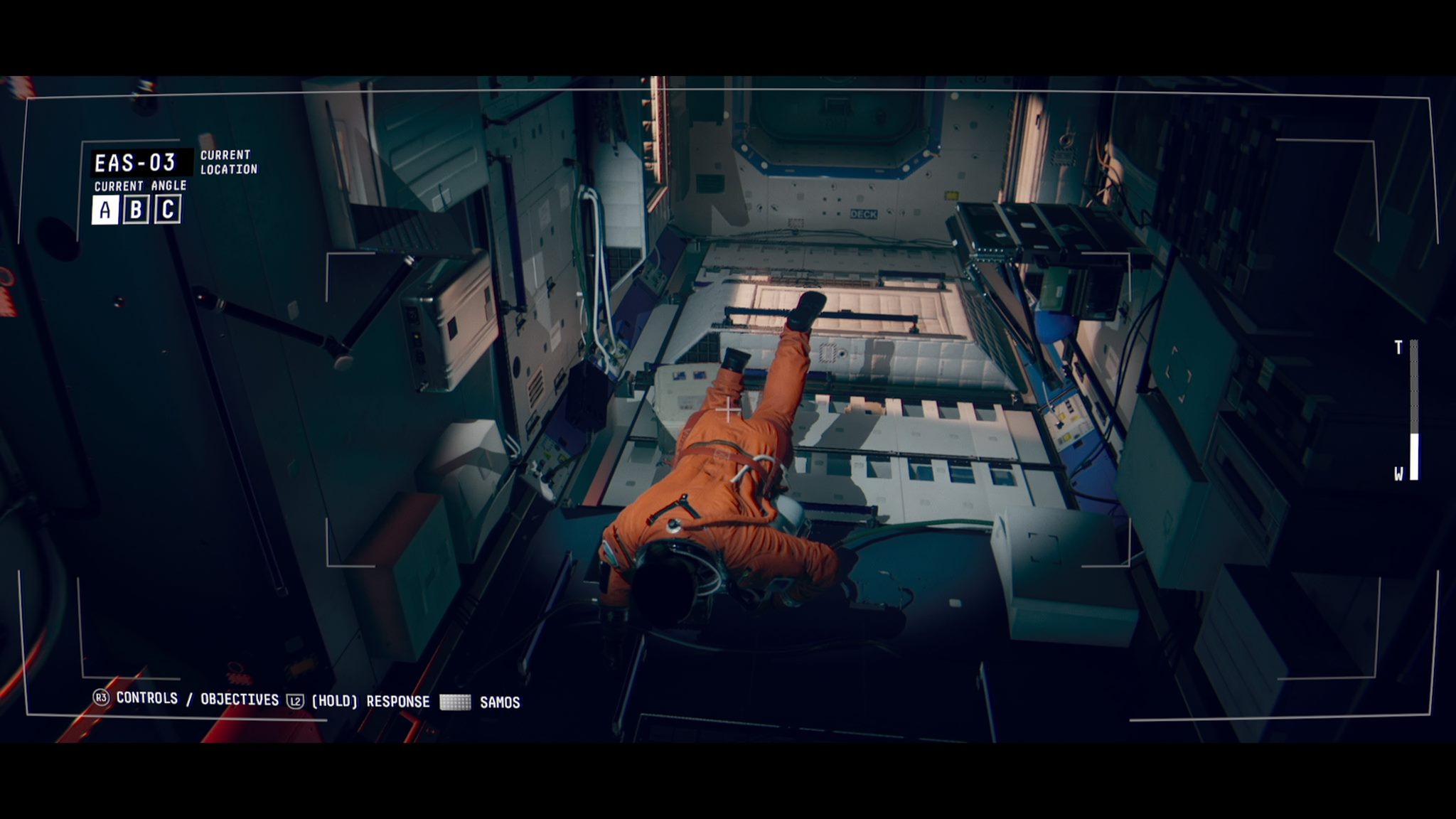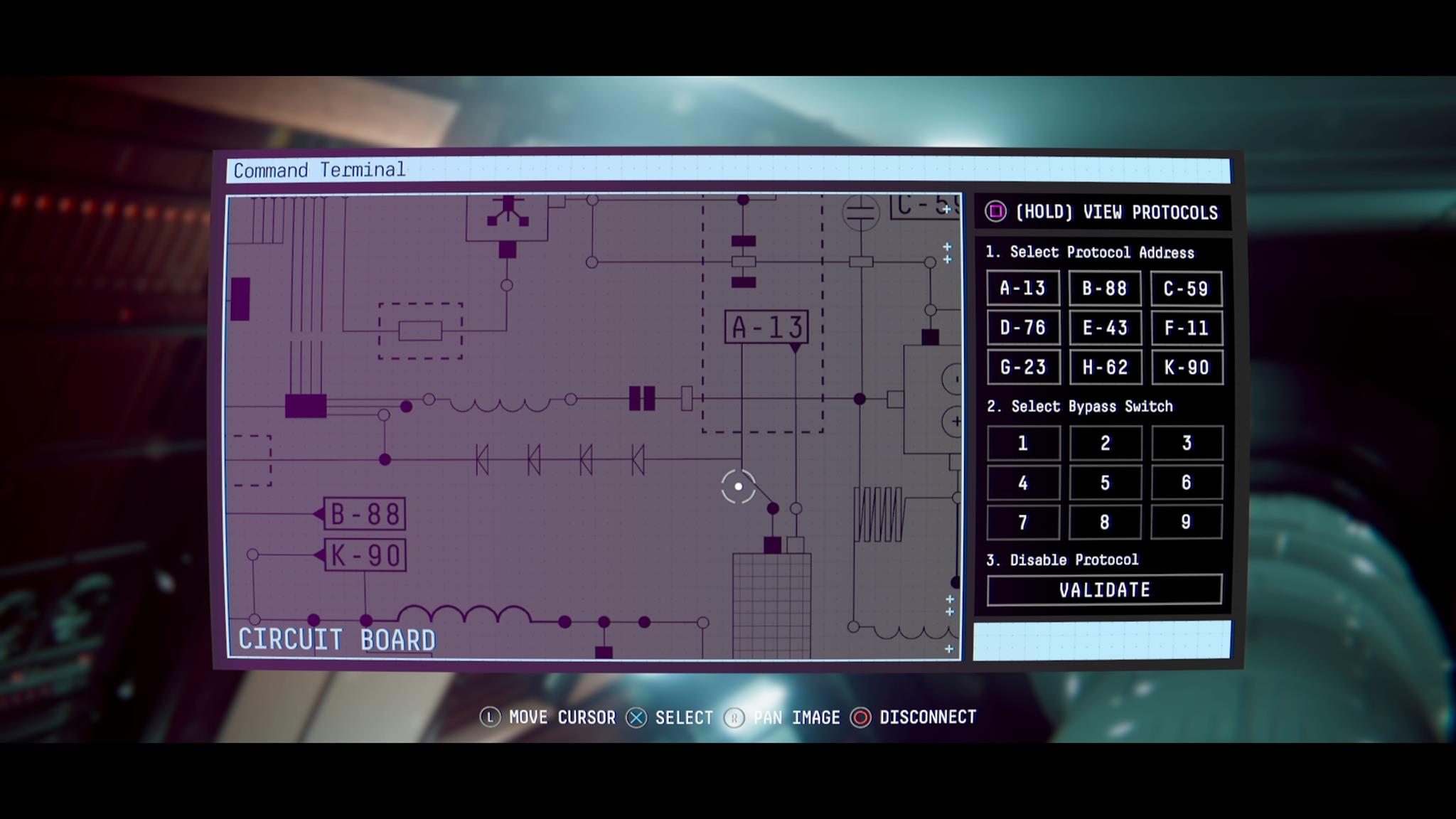Observation Review
A new Space Odyssey.
Space is a terrifying place, even without alien monsters trying to eat your brains or use your body as an incubator. Observation is a game that understands this innately and intimately. Few games have managed to mirror the real-world sense of isolation and claustrophobia of living on a cramped space station like this.
That tense atmosphere is a constant companion—no matter what else is going on—and proves to be an amazingly effective way to keep players glued to the game. Stripped down to its barest components, Observation is a game of puzzle solving and slow-paced exploration. It’s certainly classifiable as a ‘walking’ (or in this case, floating) game, where the biggest draw is the story.

The story, without giving details, concerns an astronaut named Emma who wakes up to a confusing nightmare aboard a research space station. You don’t play Emma, though. Instead, your role is as the station’s AI named SAM. The two form a symbiotic relationship through the game and it’s one of the most intriguing pairings in quite a while.
Played entirely through a first-person view, SAM ‘travels’ through the station by accessing cameras found in each module. There are Chinese, Russian, American, and ‘universal’ segments, each with multiple modules separated by thick airlock doors. Most modules have multiple cameras that SAM can switch between to get better vantage points.

SAM can link up with terminals—ranging from personal laptops to system controls—within its viewpoint. Zoom the camera in towards a screen or door control mechanism, for instance, and you can unlock it to glean whatever information it has or to control it. SAM is suffering from a memory and functionality loss and frequently needs Emma’s help to access new sections.
Emma needs SAM as well, which is made clear right from the start. SAM can get into places and do things she can’t. The actual puzzles are a mix of memory and fairly simplistic feats of logic. Overall, they’re generally pretty simple, with one major caveat: Observation never spells anything completely out for you and soon you’ll realize the game requires you to actually remember things.
This can be as simple as finding sticky notes with unlock codes for laptops or mimicking circuit patterns to control doors. Other puzzles have you searching very grayscale star maps for specific objects. There’s no guidance here, you just search until you find the necessary thing. Like most games of this sort, as you search the modules, you’ll find auxiliary information to pad the story out—personal correspondence, crew bios, instruction manuals, and such. The more data SAM finds, the more it can process the current events. At various points, you’ll have to find specific data for SAM to collate in order to solve puzzles.

To have any hope of finding all these data points (or even a reasonable amount of them), SAM must comb every location from every possible angle in a slow and methodical way. Indeed, ‘slow and methodical’ describes much of this game. This is not, in any fashion, an action game. Cameras feel realistically cumbersome, with slow pans, zooming, and turns. Observation is not a game for the impatient.
Partway through the game, Emma fixes SAM up with a spherical robot body for free roaming. There are even segments where SAM uses this sphere to go outside the station, which provides a stunning sense of scale and emphasizes just how confusing and disorientating navigating in a fully 3D space like, well, space can be. Again, don’t expect the game to speed up just because SAM can free roam. That spherical body goes as slowly as everything else.
To some, this pacing will be an absolute killjoy, but Observation is very devoutly paying homage to a very specific type of science fiction. Think 2001 or, better yet, grim Russian sci-fi like Solaris. Observation is a game that works in slow and lengthy camera shots, where it quiets down and the camera just lingers there. It’s especially counter to Western ideas of pacing, but this is decidedly more intellectual-minded science fiction.

That’s not to say Observation is pretentious. It’s not. It feels personal and emotional, even if the ending is decidedly oblique. After a rush of pure action games, this is a welcome palate cleanser; a game that really just wants to tell a spooky, evocative, and engaging story. At maybe 5-7 hours (if that) Observation isn’t a huge time sink either, but will likely be a game that sticks in your mind long after you put the controller down.
[Reviewed on PS4]

